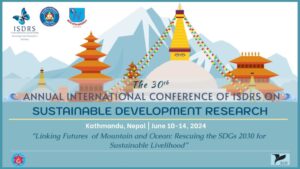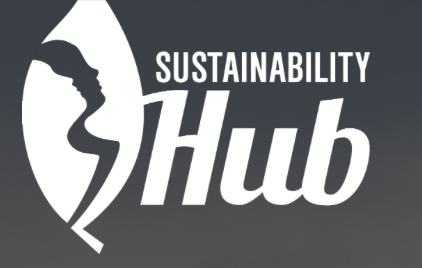Next Conference: Track 4a
Keep up to date with developments of ISDRS 2024 Track 4a here
“Linking Futures of Mountain and Ocean: Rescuing the SDGs 2030 for Sustainable Livelihood“
Past Conference
Nanjing, China 2019
Chair: João Joanaz de Melo
The discussion in this session focused on three main topics:
-
- An example was shown on the challenges of complying simultaneously with ambitious development targets and ambitious environmental targets, using as case study the Beijing-Tianjin-Hebei region. Although the region showed improvements on both counts, not all targets were met. It is clear that the decoupling of economic growth and pollution does not depend on technology and regulations alone; it entails a discussion of actual practices, compatibility of development goals, and definition of sustainability.
- Life cycle assessment is an essential tool to better measure improvements in climate responses and other sustainability issues, because a large part of the impacts is upstream or downstream in the life cycle. A case study was presented for ecological footprint calculation of the Budapest Metropolitan Region. Urban impact goes well beyond the area of the city; there is a significant overshoot in urban areas, underlying the need to consider overall resource use.
- A strategy for a sustainable decarbonization of the energy sector was discussed with the case study of Portugal. The main conclusions were: (i) decarbonization must be integrated in an overall sustainability strategy, (ii) the top priority for energy policy measures must be energy efficiency, because it is the most cost-effective and environmentally best way to reduce greenhouse gas emissions, and (iii) besides regulations, it is imperative to develop environment-directed market instruments and energy literacy.
- Messina, Italy, 2018
- Chairs: João Joanaz de Melo & Benedetto Rugani
- Monitoring results of climate change at local level are mostly in line with the trends predicted at global and continental level. However local analysis is important because there are specific aspects that can only be understood and answered at the local level.
- Poor populations are most vulnerable to environmental crisis, including climate change. This vulnerability increases in contexts with high level of corruption, because it severely curtails development opportunities and resource management good practice.
- LCA is an essential tool for effective response to climate change and other sustainability challenges. Indicators should be carefully selected both to cover most relevant environmental aspects and to avoid redundant information.
2017 Bogotá Conference Track 2c3a: Resource exhaustion and Climate change, predicting impacts
Even with technological advances, there will be no effective decoupling if people are not willing to want less, particularly in the richer countries. There has been insufficient research into this issue. Using the words of Pope Francis (Encyclic “Laudato Sí - on care for our common home), our biggest enemies are greed, wastefulness and selfishness (read more)
Knowledge Resources
State of the Art:
Recommended Sources:
a) The most recent assessment reports are available at the IPCC website.
b) Look at the UN Sustainable Development Solutions Network on Deep Decarbonization Pathways
Routledge & Earthscans' Sustainability Hub
Find useful essays, free books and articles, case studies and more at our partner's website:
Who are we?
LinkedIn Discussions
Recent discourses on the ISDRS LinkedIn discussion group:
June 2017 H. Naumann posted: The Anticipating Climate Hazards - Climate CoLab contest
February 2017 Annie Goeke posted: Ivory Coast First Climate Change Initiative Project - EcoCity Cocody
February 2017 Peter Strachan posted: What will UK fracking look like? Shale industry releases visualisation – opponents say it’s misleading and unhelpful
December 2016 Peter Strachan posted: Guest post by Peter Strachan and Alex Russell: It’s time for the UK to #Fracking #Fraxit
Partner Organisations
We can give your network exposure here

